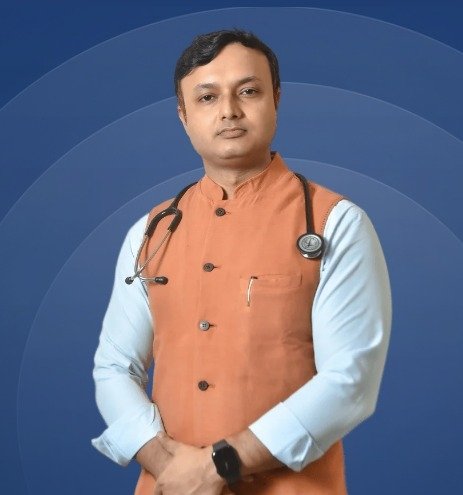
-
 Posted By Dr. Amritangsu Borkakoty
Posted By Dr. Amritangsu Borkakoty -
-
Comments 0
Because fatty liver disease often has no symptoms, your doctor may be the first one to spot it. Higher levels of liver enzymes (elevated liver enzymes) that turn up on a blood test for other conditions may raise a red flag. Elevated liver enzymes are a sign your liver is injured. To make a diagnosis, your doctor may order:
- Ultrasound or computed tomography (CT scan) to get a picture of the liver.
- Liver biopsy (tissue sample) to determine how far advanced liver disease has progressed.
- Fibro Scan, a specialized ultrasound sometimes used instead of a liver biopsy to find out the amount of fat and scar tissue in the liver.
There’s no medication specifically for fatty liver disease. Instead, doctors focus on helping you manage factors that contribute to the condition. They also recommend making lifestyle changes that can significantly improve your health. Treatment includes:
- Avoiding alcohol.
- Losing weight.
- Taking medications to manage diabetes, cholesterol and triglycerides (fat in the blood) etc.
The best way to avoid fatty liver disease is to do the things that maintain overall health:
- Stay at a healthy weight. If you have overweight/obesity, lose weight gradually.
- Exercise regularly.
- Limit your alcohol consumption.
- Take medications as prescribed.
The liver has an amazing ability to repair itself. If you avoid alcohol or lose weight, it’s possible to reduce liver fat and inflammation and reverse early liver damage.
Fatty liver disease doesn’t cause major problems for most people. However, it can turn into a more serious problem if it progresses into cirrhosis of the liver. Untreated cirrhosis of the liver eventually leads to liver failure or liver cancer. Your liver is an organ you can’t live without.
Recent Posts
- Essential Vitamins for Liver Function: Top 5 Nutrients for a Healthy Liver
- 7 Remarkable Benefits of the Mediterranean Diet for NAFLD
- 5 Liver-Friendly Foods for Better Digestion and Gut Health
- 7 Delicious Liver Friendly Holi Recipes for a Healthier Celebration
- 5 Best Liver Cleansing Herbs that Support Liver Health

